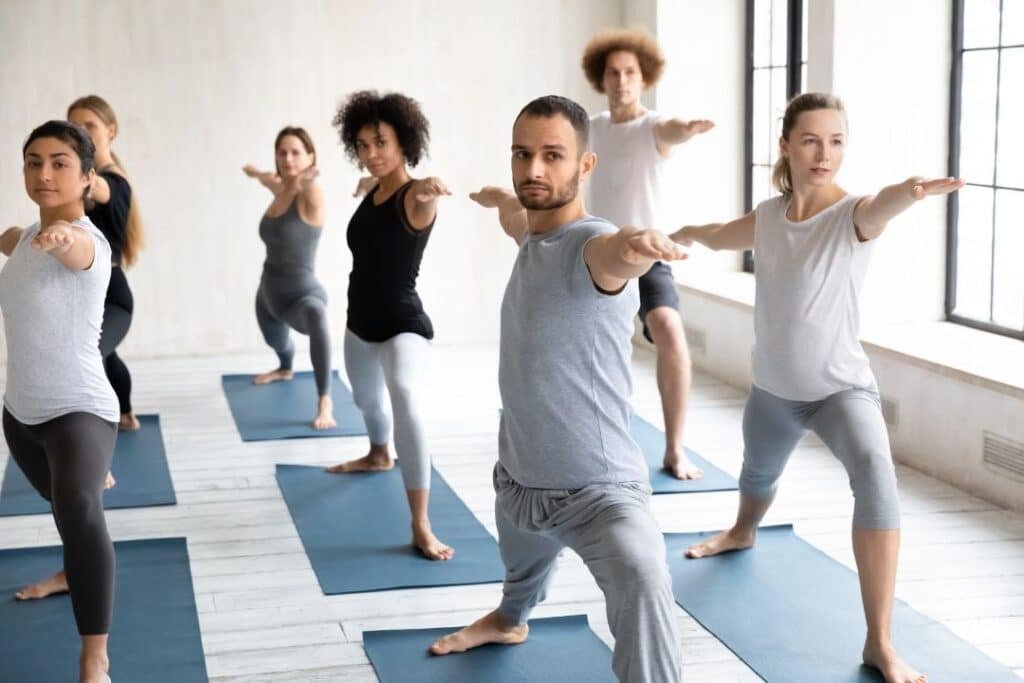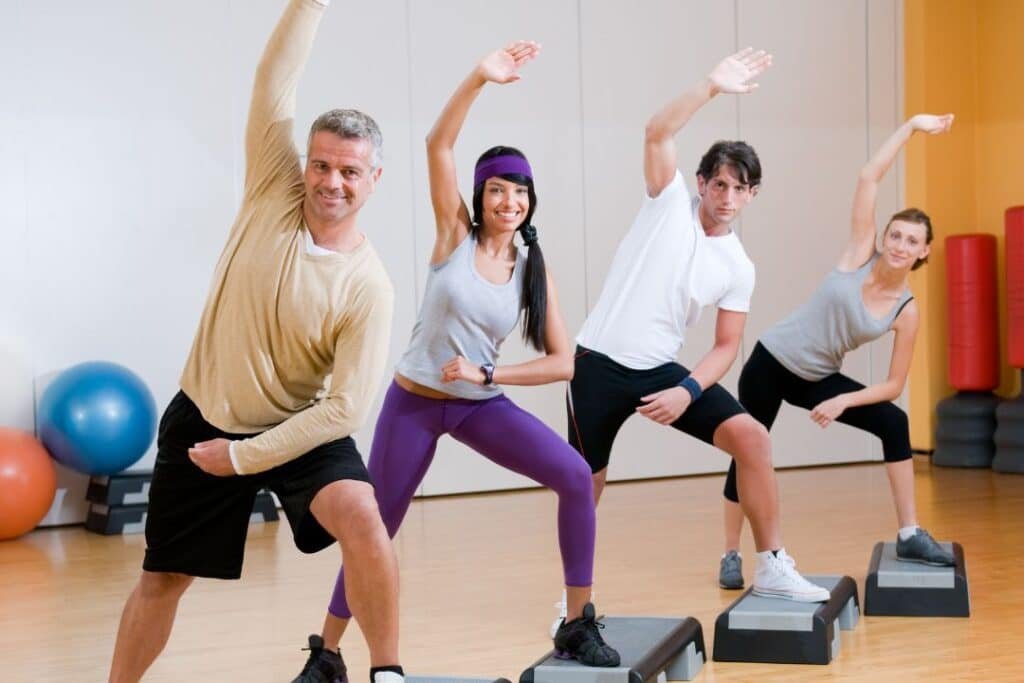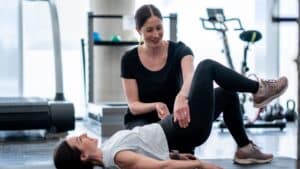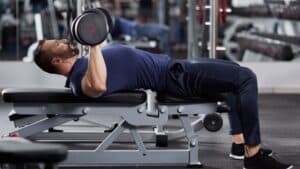Starting your fitness journey can feel overwhelming, especially if you’re stepping into a gym for the first time. That’s why choosing the right gym exercises for beginners is essential for building confidence, improving strength, and avoiding injury. Instead of rushing into advanced routines, focusing on simple and effective movements will help you master the basics and form good habits that last. At EFM Glenelg, we guide beginners through safe, structured workouts that balance cardio, strength, and flexibility. By learning proper technique early, you set the foundation for long-term fitness success. Whether your goal is weight loss, building muscle, or improving overall health, the right approach to beginner-friendly gym workouts makes all the difference. Let’s explore some practical and sustainable gym exercises tailored for beginners that will help you move better and feel stronger every day.
Why Gym Exercises for Beginners Are the Key to Lasting Results

Many people skip the basics and dive into advanced routines, only to feel sore, discouraged, or even injured. That’s why gym exercises for beginners are designed to ease you into fitness at your own pace. Simple bodyweight moves like squats, push-ups, and planks build core strength and stability, while light weight training introduces your muscles to resistance without overwhelming them. These exercises help you develop coordination, balance, and confidence in a gym environment. More importantly, starting with beginner-friendly routines prevents burnout, allowing you to gradually increase intensity as your body adapts. At EFM Glenelg, we see firsthand how structured beginner workouts transform members from hesitant starters into motivated fitness enthusiasts. By focusing on progression, not perfection, you’ll establish a healthy routine that feels achievable and rewarding, setting the stage for long-term results.
The Best Gym Exercises for Beginners to Build Strength and Confidence

When stepping into the gym for the first time, it’s crucial to know which movements give you the best return on effort. The most effective gym exercises for beginners include squats for lower body strength, push-ups for upper body development, and rows to build a strong back. Planks and glute bridges help improve core stability, which is vital for balance and posture. These exercises use functional movements that translate into everyday life, making them practical beyond the gym. Beginners should focus on performing each exercise with correct form rather than rushing into heavier weights or high repetitions. At EFM Glenelg, our trainers demonstrate each move, ensuring members feel confident and safe. By consistently practicing these foundational exercises, you’ll not only see physical changes but also build mental resilience that keeps you motivated to continue progressing.
How to Structure a Gym Exercises for Beginners Routine Effectively

A well-structured routine is the backbone of success for newcomers. A balanced gym exercises for beginners program should include three parts: a warm-up, strength training, and a cool-down. Warming up with five to ten minutes of light cardio prepares your muscles and joints, while strength training should focus on compound movements like squats, lunges, and presses. Aim for two to three sets of 10–12 repetitions, adjusting intensity as you grow stronger. Finish with stretching to promote flexibility and recovery. Consistency matters more than intensity, so start with two to three sessions per week and build from there. At EFM Glenelg, we create personalized beginner routines that match your fitness level, schedule, and goals. This structure ensures steady progress without overwhelm, helping you develop both physical endurance and confidence as you transition to more advanced training.
Common Mistakes to Avoid in Gym Exercises for Beginners

While enthusiasm is important, beginners often make errors that slow down progress. One of the biggest mistakes with gym exercises for beginners is prioritizing heavy weights over correct form. Poor technique not only reduces effectiveness but also increases the risk of injury. Another common misstep is skipping warm-ups or neglecting rest days, both of which are essential for recovery and performance. Beginners also tend to compare themselves to others, leading to frustration and burnout. At EFM Glenelg, we emphasize education teaching members why technique, rest, and gradual progression matter. Trainers guide you to focus on quality over quantity, ensuring each movement is safe and effective. By avoiding these mistakes and sticking to a smart, supportive routine, you’ll experience consistent results and enjoy the process rather than feeling rushed or discouraged.
Final Thoughts
Starting your fitness journey doesn’t have to be intimidating. By committing to structured gym exercises for beginners, you’ll build a foundation of strength, confidence, and healthy habits that last a lifetime. The key is focusing on technique, gradual progression, and consistency rather than chasing quick fixes. At EFM Glenelg, we pride ourselves on creating a welcoming environment where beginners feel supported every step of the way. With guidance from our expert trainers, you’ll not only learn the right exercises but also develop the confidence to push past self-doubt. Remember, the first step is always the hardest, but it’s also the most important. Book your free trial session today and discover how EFM Glenelg can help you achieve your fitness goals with safe, effective, and beginner-friendly training.
FAQ (frequently asked questions)
The best gym exercises for beginners to lose weight are those that combine cardio with strength training. Treadmill walking, cycling, and rowing machines are excellent for burning calories, while squats, push-ups, and planks build lean muscle that boosts metabolism. Strength and cardio together help you lose weight more effectively than cardio alone. At EFM Glenelg, our trainers create beginner-friendly routines that balance fat-burning exercises with resistance training for long-term results.
For most people, starting with three gym sessions per week is ideal. This schedule gives beginners enough activity to see progress while allowing rest days for recovery. Each session should include 30–45 minutes of exercise with a mix of cardio and strength. Consistency is more important than intensity in the beginning. Over time, as your body adapts, you can add more days or longer sessions. At EFM Glenelg, we recommend starting small and gradually building up to a routine that fits your lifestyle.
Not always. Many gym exercises for beginners can be done with just body weight, such as squats, lunges, and push-ups. However, using basic equipment like resistance bands, light dumbbells, or machines can speed up progress and provide variety. The key is learning proper technique before adding more weight. Beginners often benefit from mixing bodyweight training with simple equipment-based exercises to stay motivated and well-rounded.
The most important step is focusing on good form over heavy weights. Beginners should also warm up for 5–10 minutes before training and stretch afterward to improve flexibility. Listening to your body is essential if something feels painful (not just challenging), stop immediately. Taking rest days is equally important, as muscles grow and recover during downtime. At EFM Glenelg, trainers guide you through safe, progressive routines to ensure you avoid common beginner mistakes and stay injury-free.






